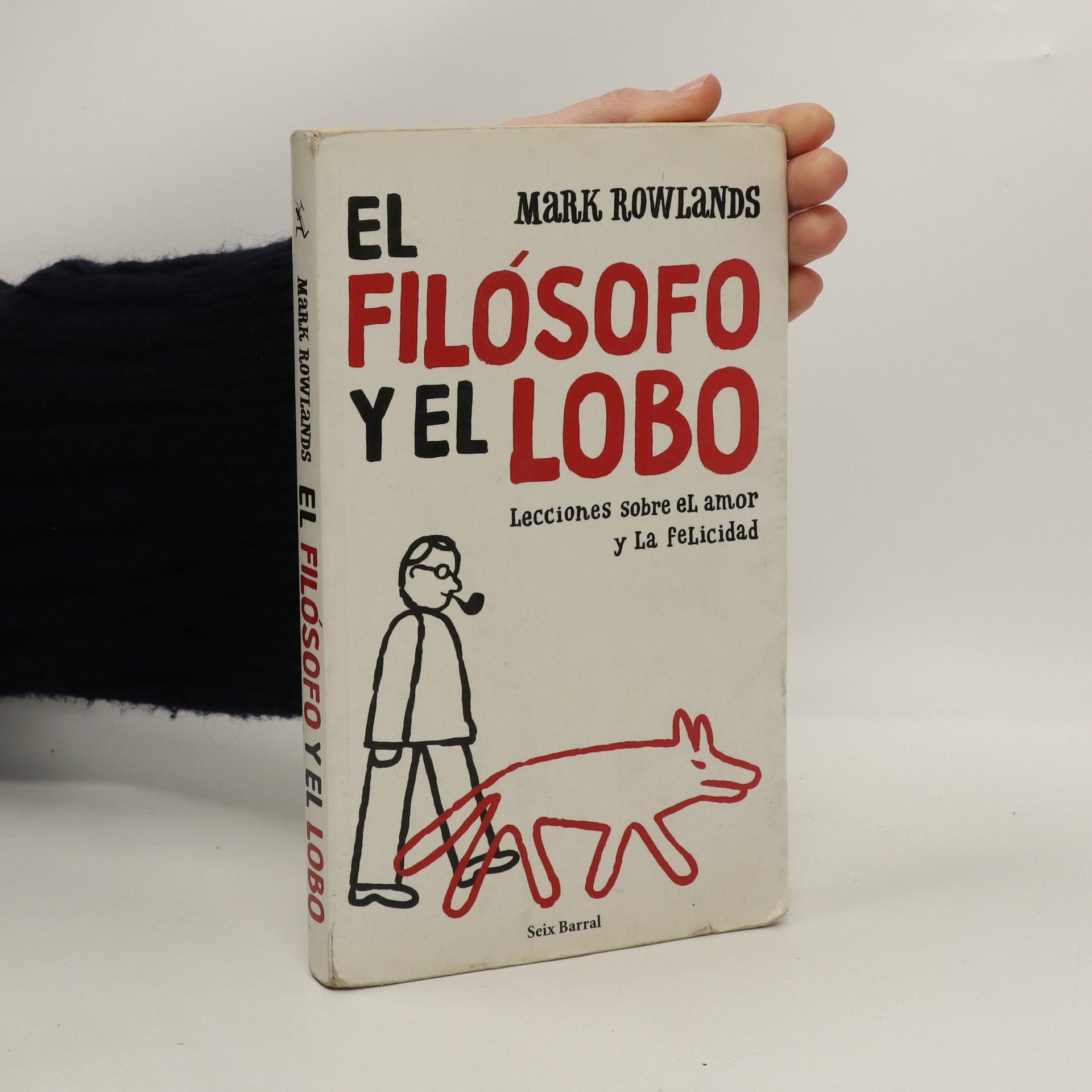Mark Rowlands, un joven profesor de filosofía, vivió durante más de diez años con un lobo llamado Brenin, y gracias a él comprendió el sentido de la vida. Ésta es la historia de cómo Mark cambió su visión de sí mismo y del mundo compartiendo su día a día con Brenin en diversas ciudades, y de cómo poco a poco descubrió una nueva forma de entender la amistad, la felicidad y la justicia. El filósofo y el lobo mezcla la sabiduría de filósofos como Nietzsche, Heidegger o Epicuro con la del lobo, y nos enseña a ser más felices y mejores personas con mucho amor e infinita ternura. En algún lugar recóndito de nuestra alma pervive el recuerdo del lobo que una vez fuimos. Las enseñanzas del profesor Rowlands nos ayudan a reencontrarnos con él.
Mark Rowlands Libros
Mark Rowlands es un filósofo reconocido por sus importantes contribuciones a los conceptos de la mente extendida y el estatus moral de los animales. Su obra más célebre narra su década única viviendo y viajando con un lobo, explorando la compleja relación entre humanos y animales no humanos. Esta cautivadora narrativa a menudo se describe como una autobiografía de ideas, que profundiza en la conciencia, el conocimiento y ofrece una crítica del pensamiento convencional sobre nuestro lugar junto a otras criaturas. El libro es elogiado por sus perspicaces reflexiones y su poderoso examen del vínculo entre especies.






Animals Like Us
- 236 páginas
- 9 horas de lectura
The book critiques the commodification of animals, highlighting the severe consequences of a consumerist society that prioritizes profit over ethical treatment. It presents disturbing imagery of animal suffering, from chickens on conveyor belts to dogs subjected to brutal experiments, emphasizing the disconnect between consumers and the realities behind their food. The narrative challenges readers to confront the moral implications of their choices and recognize the hidden cruelty involved in the industrial meat production process.
The book presents a groundbreaking perspective on cognitive processes through a radical externalist or environmentalist lens. It challenges traditional views by emphasizing the significant role of the environment in shaping cognition, suggesting that understanding thought requires examining external factors rather than solely internal mechanisms. This innovative approach invites readers to reconsider the relationship between mind and environment, offering fresh insights into how cognitive processes are influenced by external contexts.
The philosopher Mark Rowlands takes a novel perspective on the problem of climate change and how to address it. With energy consumption at the core of the issue, he claims climate, extinction, and pestilence as three epoch-defining environmental issues of our time. Rowlands proposes a single solution to all three: breaking our collective habit of eating animals. Bringing to bear analytic rigor and empirical data, Rowlands argues that reversing the industrial farming of animals for our consumption will both significantly reduce energy emissions and allow for free space to aggressively reforest land being used by industrial animal farms to mitigate the effects of climate change.
Animal Rights: All That Matters
- 147 páginas
- 6 horas de lectura
Animal Rights is a big deal. From animal testing to vegetarianism, and hunting to preservation of fish stocks, it's a topic that's always in the news. Mark Rowlands, author of The Philosopher and the Wolf, is the world's best known philosopher of animal rights. In this, the first introduction he has written to the topic, he starts by asking whether there is anything about humans that makes us psychologically or physiologically distinctive - so that there might be a moral justification for treating animals in a different way to how we treat humans. From this foundation, he goes on to explore specific issues of eating animals, experimentation, pets, hunting, zoos, predation and engineering animals. He ends with a challenging argument of how an improved understanding of animal ethics can and should affect readers' choices.
The Philosopher At The End Of The Universe
- 320 páginas
- 12 horas de lectura
It's Plato, it's Hume, Baudrillard and the concept of the Nietzschean superman!' Keanu Reeves on The MatrixThe Philosopher at the End of the Universe allows anyone to understand basic philosophical concepts from the comfort of their armchair, through the plots and characters of spectacular blockbusting science-fiction movies.
Running with the Pack
- 224 páginas
- 8 horas de lectura
Mark Rowlands explores the intimate relationship between running and thinking, especially thoughts about the meaning of life, in this brilliant follow-up to The Philosopher and the Wolf
Animal Rights
- 224 páginas
- 8 horas de lectura
Exploring the contentious moral issue of animal rights, this concise and accessible overview delves into various perspectives and arguments surrounding the treatment of animals. It presents a balanced discussion, making complex ideas approachable for readers, and encourages thoughtful consideration of ethical implications and societal responsibilities toward animals.
Delving into a dog's perspective, this insightful exploration reveals how their experiences can illuminate human understanding. The author, known for previous works like The Philosopher and the Wolf, offers a unique lens on the bond between humans and dogs, highlighting the lessons we can learn about ourselves through our furry companions.
Der Läufer und der Wolf
- 239 páginas
- 9 horas de lectura
Mark Rowlands ist kein typischer Läufer. Der Philosophieprofessor kämpft mit leichtem Übergewicht und schlechter Kondition, er ist melancholisch und dem Alkohol nicht abgeneigt. Und trotz eines nicht auskurierten Muskelfaserrisses trainiert er für einen Marathon. Sein Begleiter ist ein Wolf, den er schon als Welpen zu sich genommen hat und der den Professor auf seinen täglichen Laufrunden auf allerlei ungewöhnliche Gedanken bringt: über die Liebe und den Tod, über Mensch und Tier, über den Sinn des Lebens.

